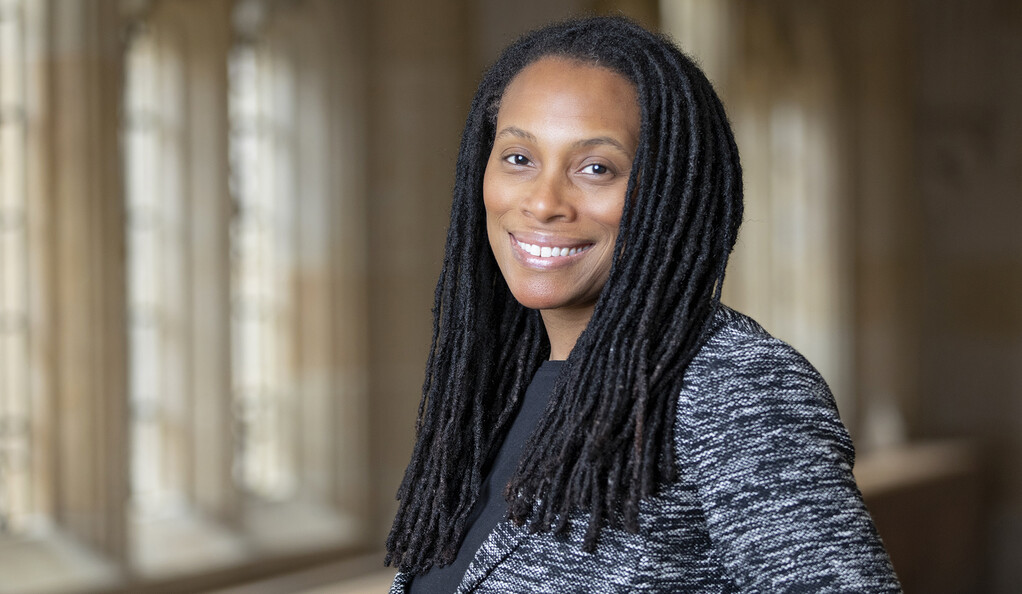Yale Professor Marcella Nunez-Smith Honored by the Greater New Haven NAACP
From her leadership in New Haven to her appointment to President Biden’s COVID-19 Health Equity Task Force, Nunez-Smith wrestles with healthcare disparities across the nation.

Yale News
On Thursday, Marcella Nunez-Smith, associate dean of health equity research, was honored by the New Haven community for her long-standing leadership and support in the battle against national healthcare disparities.
With significantly higher rates of COVID-19 infections plaguing racial minority groups across the country, the pandemic shines a light on a structural chasm: healthcare inequity. The inequity stems from a variety of problems, including rampant poverty which leads to crowded households and the inability to work from home. To celebrate her efforts spearheading these problems, Nunez-Smith has been given the highest honor the Greater New Haven Branch of the National Association for the Advancement of Colored People can offer — the Reverend Dr. Martin Luther King, Jr. Award. A ceremony lauding her achievements was held on Oct. 7 through a Zoom meeting. The achievement comes after Nunez-Smith won the 11th Annual Visionary Leadership Award at New Haven’s International Festival of Arts & Ideas earlier this year.
“The Reverend. Dr. Martin Luther King, Jr. Award is presented to an individual who has significantly advanced the cause of freedom and racial equality in the Greater New Haven area and beyond through demonstrated, sustained and outstanding leadership,” Greater New Haven NAACP President Dori Dumas wrote in an email to the News.
The NAACP has been committed to civil rights activism for African Americans since the 1900s. In the past, it has contributed to landmark civil rights victories including Brown v. Board of Education, which banned segregation in public schools. Today, the organization is committed to creating inclusive spaces for Black Americans in the healthcare, education, climate and justice systems. In the healthcare system specifically, the association is fighting for affordable health care, battling systems of oppression in health care and increasing access to nutrition in marginalized communities, according to the NAACP website.
Nunez-Smith hopes to give a platform to “patients who are often erased from the health care narrative,” she told the News. Some of her past efforts have focused on supporting diversity within the healthcare workforce and emphasizing community engagement within marginalized groups.
“It’s a great honor to be recognized by an organization that has worked so hard to achieve justice for Black communities in Greater New Haven and beyond,” Nunez-Smith wrote to the News.
Dumas said that the NAACP’s Board wanted to commend Nunez-Smith’s efforts to “shed national attention on the health and healthcare disparities of marginalized populations” and thank her for “the important work she has done and is doing, and for being a champion for health equity, health access and diversity.”
Nunez-Smith continues to create solutions and address health disparities as chair of the COVID-19 Health Equity Task Force in the Biden administration and as founder of the Equity Research and Innovation Center at Yale.
“We are thrilled that her passionate dedication, hard work, and expertise are being recognized by the NAACP with this award,” Tesheia Johnson, director of clinical research at the School of Medicine and deputy director and chief operations officer of the Yale Center for Clinical Investigation, wrote in an email to the News.
Earlier this year, Nunez-Smith was also awarded the 11th Annual Visionary Leadership Award at New Haven’s International Festival of Arts & Ideas. The award recognizes individuals for outstanding work that has expanded beyond the Elm City.
The Annual Visionary Leadership Award honors pioneers who have had a global impact, such as previous awardees Rosanne Cash, singer-songwriter and author, and George Takei, an activist and actor.
“The committee’s decision to recognize Dr. Nunez-Smith among this group was a testament not only to her applied scholarship in public health and medicine, but to her lived commitment to healthcare justice and equity,” said Shelley Guiala, executive director of the International Festival of Arts & Ideas.
Nunez-Smith joined the School of Medicine in 2010 as a principal investigator.










